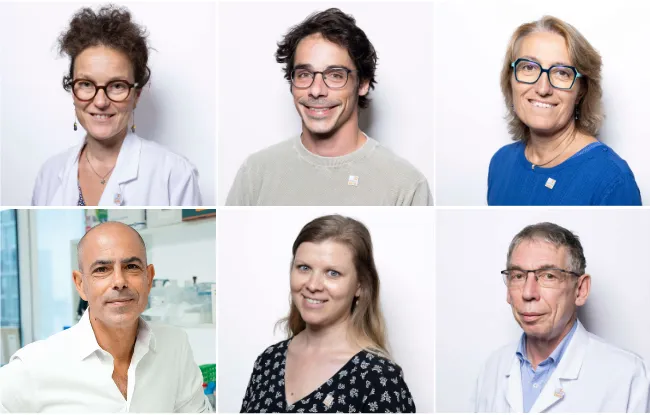- Home >
- Institut Curie News >
- Congratulations to Kasia Siudeja, recipient of an ERC Starting Grant
Kasia Siudeja joined Institut Curie’s Research Center in 2011, working in Allison Bardin’s team, Stem Cells and Tissue Homeostasis (Inserm UMR3215 / CNRS U934 / Sorbonne University), for her post-doctoral fellowship, then obtaining a position as Tenured Research Scientist Inserm in 2016.
The quality of her project, entitled “Illuminating the role of selfish genetic elements in somatic tissue homeostasis and aging” earned her an ERC Starting Grant, awarded to young researchers, with a package of close to 1.5 million euros over 5 years. This will enable her to set up her own team at the Institute for Integrative Biology of the Cell (I2BC) in Gif-sur-Yvette in January 2023, as well as hire staff and purchase equipment to develop her project.
Sincere congratulations to Kasia on this prestigious award. It is a tribute to the scientific excellence of her work and will allow her to successfully complete this wonderful project
Declares Prof. Alain Puisieux, Director of Institut Curie Research Center.
Over the course of a life, tissue homeostasis requires sustained function of differentiated cells and of progenitor cells, which ensure tissue self-renewal. We know little, however, about the role of repetitive non-genic DNA sequences in maintaining cell homeostasis in somatic tissues in vivo.
Using an approach that combines genomics techniques with developmental and cell biology approaches, Kasia and her team will address the interaction between transposable elements, omnipresent and highly repetitive DNA sequences that spread in the host genomes, and the function of somatic tissues in vivo. To do this, the group will use drosophila model, a model system highly suited to basic research. The project’s aim is to expose the importance of mobile DNA sequences in maintaining tissue homeostasis in vivo over the course of a life.



